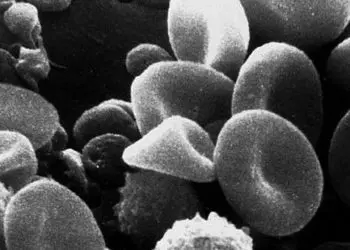Home-based app may improve quality of life among patients with incurable cancer
1. In this randomized trial, a home-based palliative educational app improved health-related quality of life (HRQoL) among homebound patients with incurable cancer.
2. The app was also associated with improved anxiety outcomes.
Evidence Rating Level: 1 (Excellent)
Study Rundown: Although palliative care plays an important role in the care of patients with incurable cancer, challenges arise from a global shortage of palliative care specialists. Palliative care educational interventions are effective tools to support patients and family caregivers, but they can be resource-intensive. Home-based palliative educational interventions appear promising, but current approaches have struggled to balance health-related quality of life (HRQoL) with cost-effectiveness. This study aimed to assess whether implementing a palliative care educational app could improve HRQoL in homebound patients with incurable cancer. A trial of over one hundred patient-caregiver pairs showed that during two months of follow-up, HRQoL increased on average for pairs who used the app and decreased for control pairs. Anxiety outcomes also improved from significant anxiety to mild anxiety in pairs that used the app but worsened for control pairs. Neither group reported study-related adverse events. The generalizability of this study is limited by a short follow-up period, a single-center design, missing information on caregiver education and income, and implementation on the Chinese-only WeChat platform. Nevertheless, these results suggest that a home-based education app may be effective for palliative care in patients with incurable cancer.
Click to read this study in AIM
Relevant Reading: Technology-Assisted mHealth Caregiver Support to Manage Cancer Patient Symptoms: A Randomized Controlled Trial
In-Depth [randomized controlled trial]: This randomized controlled trial aimed to assess whether adding a palliative care educational app to usual palliative care may improve HRQoL among homebound patients with incurable cancer. Patients were excluded if they had a history of severe depression or anxiety, severe mental dysfunction, severe cognitive impairments, or severe mental illness before enrollment. The intervention was a palliative care educational app providing guidance on symptom management, adverse effects, and nursing information through short media and text, plus usual palliative care. Quality of life was assessed using the European Organization for Research and Treatment of Cancer Quality of Life Questionnaire Core 30 (EORTC QLQ-C30) score. The secondary outcome was the mean between-group difference in the Hamilton Anxiety Rating Scale (HAM-A), with higher scores indicating worse anxiety status. The study included 74 pairs in the intervention group and 73 pairs in the control group that completed the baseline assessment. The mean patient age was 59.9 years and 42.9% were female. The majority (52.4%) of caregivers were spouses; the average age was 51.2 years (SD, 15.0) and 57.1% (n = 84) were female. An average of 183.2 logins were made on the app by family caregivers, corresponding to approximately 3.1 logins daily. Caregivers used the app for a total of 605.2 (SD, 304.0) minutes over the 2-month period, averaging to 3.3 minutes per session. The intervention group showed an increase in the EORTC QLQ-C30 summary score between baseline (45.2 [95% CI, 41.2 to 49.2]) and month 2 (51.9 [95% CI, 45.4 to 58.5]), whereas the score in the control group decreased between baseline (49.1 [95% CI, 46.0 to 52.3]) and month 2 (35.7 [95% CI, 28.6 to 42.9]), yielding a mean between-group difference of 16.2 (95% CI, 9.3 to 23.1). The intervention group also showed an improvement in the HAM-A score from 25.1 (95% CI, 22.8 to 27.4) at baseline to 20.9 (95% CI, 17.1 to 24.7) at month 2, whereas the score in the control group worsened from 23.3 (95% CI, 21.7 to 24.9) at baseline to 28.8 (95% CI, 25.1 to 32.5) at month 2, yielding a mean difference of -7.9 (95% CI, -11.6 to -4.2). Overall, this study suggests that a palliative care educational app may improve quality of life and anxiety outcomes among homebound patients with incurable cancer.
Image: PD
©2025 2 Minute Medicine, Inc. All rights reserved. No works may be reproduced without expressed written consent from 2 Minute Medicine, Inc. Inquire about licensing here. No article should be construed as medical advice and is not intended as such by the authors or by 2 Minute Medicine, Inc.








